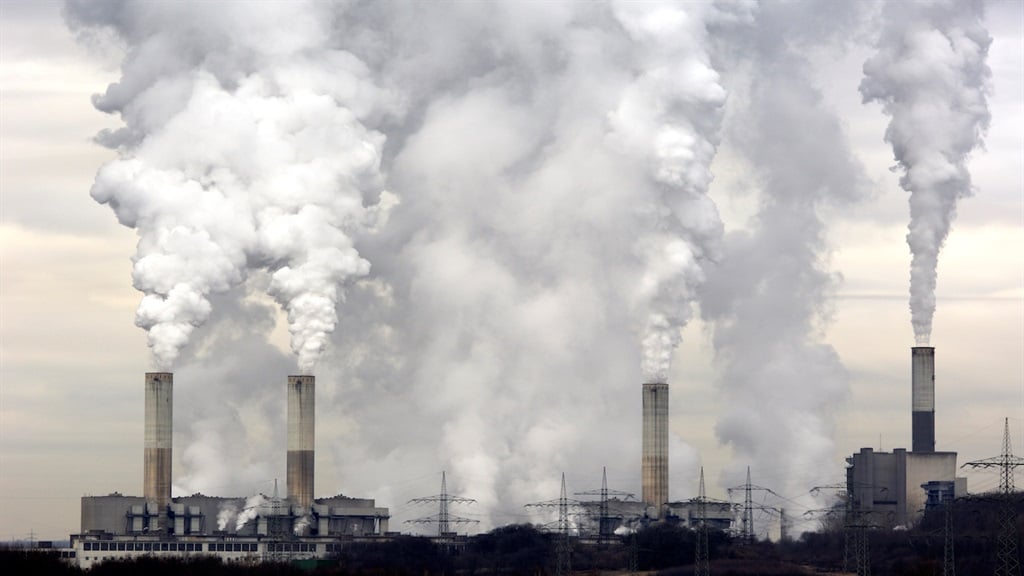
- Eleven out of the 15 most polluted African cities - excluding those in Nigeria - are in SA, according to a report by IQAir, a Swiss air quality technology and consultancy company.
- Pretoria, Vereeniging, Springs and Sasolburg are some of the major towns on the list.
- However, there was an improvement in the quality of air in SA during 2020 due to a lack of cars on the road because of Covid-19 restrictions and because of load shedding.
While the quality of breathable air in South Africa improved in 2020, thanks to reduced vehicle emissions due to Covid-19 restrictions and load shedding, 11 out of the 15 most polluted African cities are situated in this country.
The list of the 15 most polluted African cities was released by IQAir, a Swiss air quality technology and consultancy company, on Monday, but does not include data for Nigeria, the continent’s largest economy.
According to the 2020 World Air Quality Report, the southern and western coastal locations in South Africa have the lowest concentrations of pollution while "interior cities to the north carry the highest" pollution concentrations.
The Malian capital, Bamako, tops the list of most polluted African cities, with the air quality there considered "unhealthy for sensitive groups".
Sebokeng in South Africa is second, followed by Accra, the Ghanaian capital, in third place.
The city of Vereeniging is fourth while Kampala in Uganda is fifth, followed by the South African cities of Soshanguve, Sasolburg, Pretoria, Springs, Midstream and Ga-Rankuwa. Secunda and Hartbeespoort, ranked 14th and 15th respectively.
South Africa recently struck a climate financing deal to move away from coal thermal power stations but is already among the biggest polluters in the world.
"In 2020, only 4.9% of South African cities met World Health Organisation (WHO) targets for annual pollution exposure. South Africa’s heavy reliance on coal-based energy and other fossil fuels, comprising 91% of the country’s energy mix, is a major source of ambient particle pollution," notes the report.
Although SA features prominently on the list of 15 most polluted African cities, about "90% of cities in South Africa experienced improved air quality" in 2020. This has resulted in South African cities also dominating the index of 15 least-polluted cities in Africa.
Cape Town, Gqeberha and Mokopane are ranked as the three least-polluted cities in Africa followed by Ziguinchor in Senegal, Mahikeng, Potchefstroom, Phalaborwa and Mombasa in Kenya. Liphalale, Luanda in Angola, East London, Thabazimbi and Addis Ababa also make the list of the 15 least-polluted African cities.
For South Africa, the improvement in air quality by its cities in 2020 "is attributable to measures taken to reduce the spread of SARS-CoV-2, namely reduced vehicular emissions as a result of shuttered businesses and facilities during lockdown periods and measures to protect the electricity power system from a total collapse" through load shedding.
Although there was reduced electricity demand during periods of lockdown for most of 2020, power utility Eskom "still had limited capacity and implemented load-shedding frequently" and this was deemed as "further contributing to the decline" in emissions for South African cities.
With populations across Africa expected to double in the next 30 years, balancing rapid growth, industrialisation, and urbanisation with clean air is becoming imperative.
Further worsening this are outbreaks of fire across much of the continent, resulting in NASA satellite data exposing Africa as the "fire continent" with an estimated 70% of global fires occurring in the region and further worsening pollution and health hazards.
The report by IQAir estimates that "air pollution claims up to 780 000 African lives" each year.
